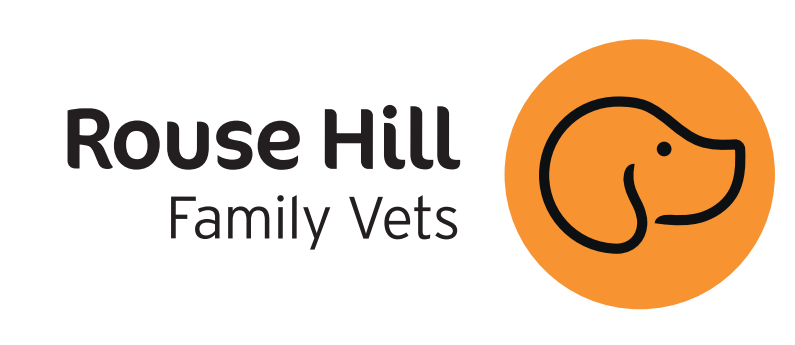
Canine Enteric Coronavirus is a common virus affecting dogs of all ages but puppies are particularly susceptible. Whilst it is a similar type of virus to human Coronavirus which causes COVID, it causes different symptoms in puppies and dogs and is not transmissible to humans.
What is Coronavirus?
As coronavirus attacks the gastrointestinal tract, the clinical signs include:
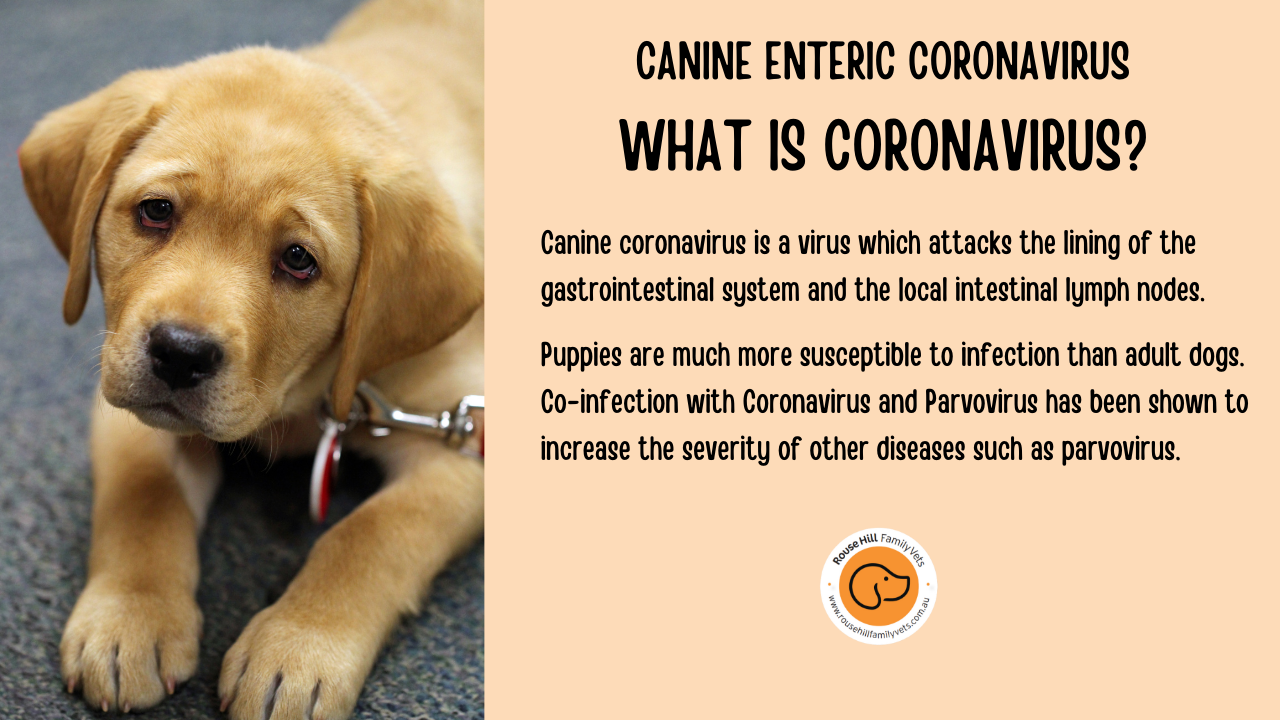
Clinical signs of Coronavirus?
Clinical signs vary and are nonspecific and include:
- Decreased appetite
- Lethargy
- Diarrhoea
- Vomiting
- Weight loss
- Dehydration
- In severe cases, fever and neurological signs (ataxia, seizures) and sudden death
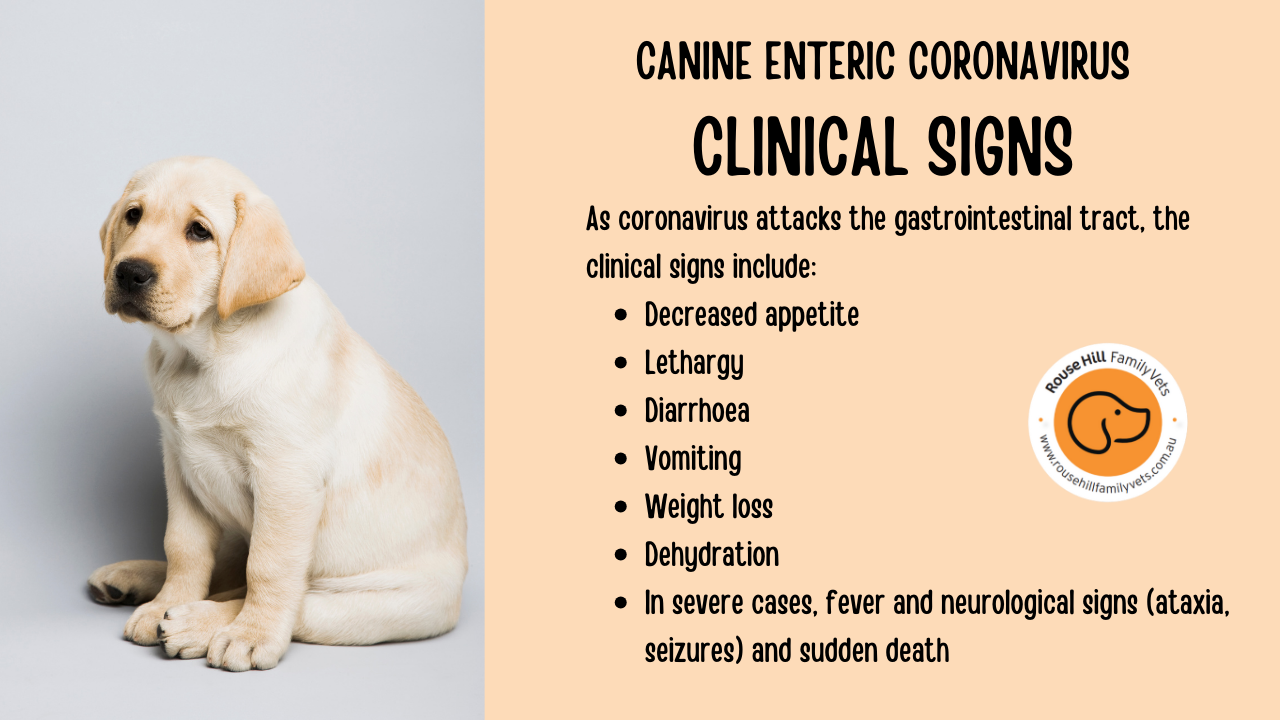
How is Coronavirus spread?
Dogs and puppies become infected with Coronavirus by ingesting the virus, generally through inadvertent ingestion of infected faeces. Coronavirus is shed in the faeces of infected dogs for 3 – 14 days post infection.
How is Coronavirus diagnosed and treated?
We may suspect coronavirus infection based on the signs your puppy or dog is showing, your puppy’s history and other factors. Faecal PCR testing can confirm the diagnosis.
There is no specific treatment for Enteric Coronavirus. So treatment involves supportive care which may include hospitalisation to correct dehydration and physiological imbalances caused by vomiting and diarrhoea, control nausea and pain, keeping them warm, preventing other infections from happening and providing nutritional support. If there is co-infection with other viruses, more intensive care treatment may be required.
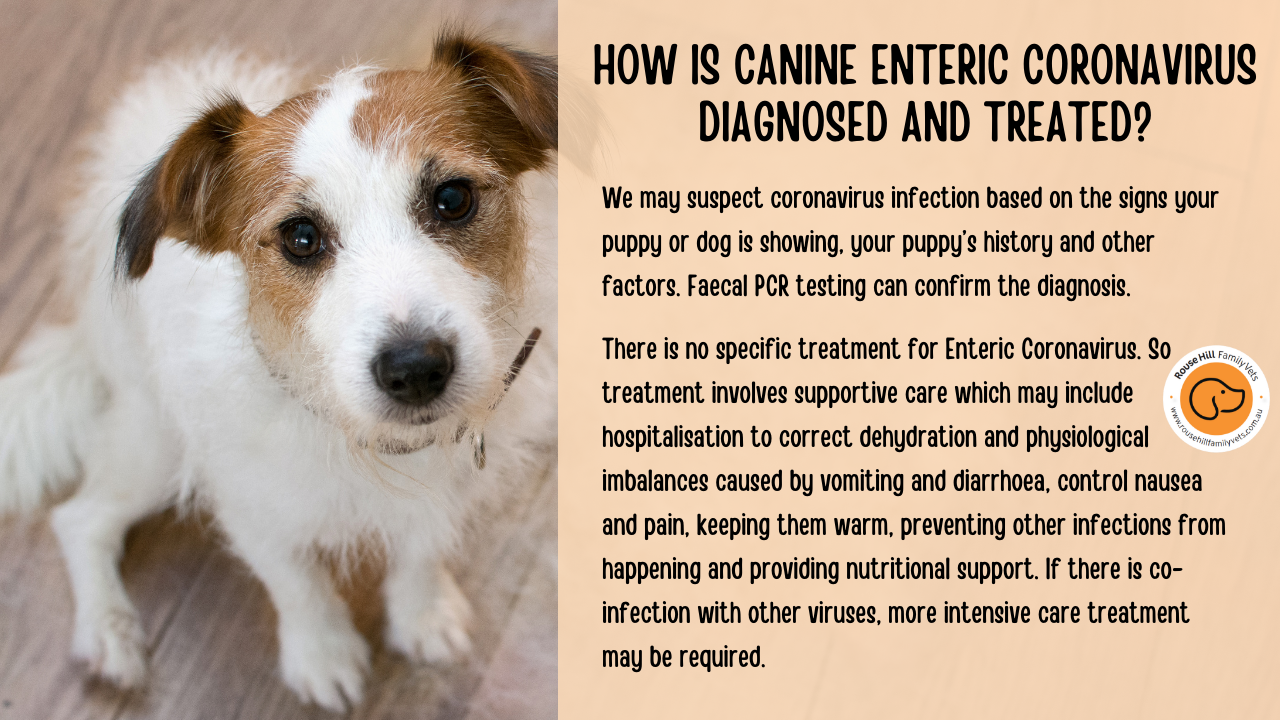
How can I protect my puppy or dog against Coronavirus?
- Avoiding contact with other dogs who are not fully vaccinated and well
- Choose establishments and training programs that require up-to-date vaccinations, health examinations, good hygiene and isolation of sick puppies and dogs – Our puppy preschool is a safe space to socialise your puppy.
- Keep your dog away from other dog’s faeces
- Keep your dog away from other dogs when sick, including other dogs within your home
- Avoid contact with known infected dogs and their premises
- Routinely collect and properly dispose of your dog’s faeces
- If you’ve been in contact with dogs with or exposed to coronavirus, avoid handling other dogs or wash your hands and change your clothes before doing so.
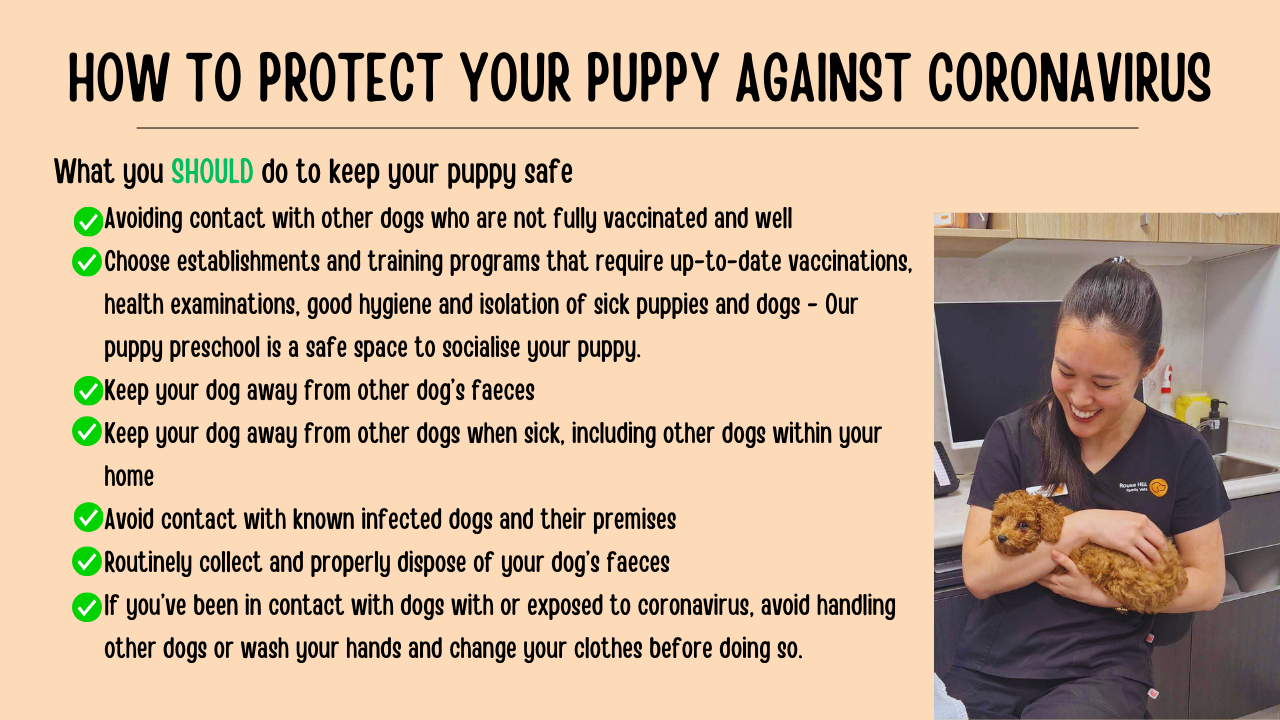
We offer puppy and dog vaccinations Monday to Saturday in our purpose built veterinary hospital in Rouse Hill, Sydney. All of our experienced veterinarians and veterinary nurses are fear free certified professionals who ensure we care for not only the physical wellbeing of your dog but also their emotional wellbeing.
For more information regarding the vaccines we offer and costing CLICK HERE.
